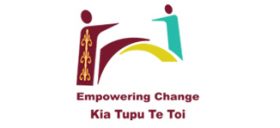Bicultural Leadership for Corporate and Government Leaders in Aotearoa New Zealand:
Do you aspire to thrive as a leader and energise others by becoming a vital agent of innovation and positive change?
Through Empowering Change’s Bicultural Leadership Training you can access ways of being and doing that will enhance your organisation and expand opportunities.
Tīmoti Harris is an experienced Secondary Principal, Ministry of Education Facilitator, University Lecturer and specialist teacher, facilitator and educator who will tailor-make a programme for organisational change based on strongly inclusive and relational bi-cultural pedagogy
It is the contention of Empowering Change – Kia Tupu Te Toi that the process which facilitates the unpacking of the content and related facts within the founding documents of our land is one which requires sensitivity, discretion and tact. Further, whilst the subject matter is of great consequence, it needs to be introduced, handled and worked with, with an awareness of and a commitment to the genuine care and nurture of all participants.
“As a facilitator of 35 years and a teacher and educationalist of 45 years experience, I believe that the way to effect attitudinal change, hence professional leadership change also, is to work not just through cognitive empathy but also through affective and indeed compassionate empathy. It is my strongly held belief that genuine and long-lasting change and growth comes when both intellect and knowledge are stimulated by the engagement of the heart. Further I contend that working through a humanistic approach when exploring participants’ attitudes, minimises defensiveness and indeed generates an increased appetite for knowledge and understanding. This in its’ turn empowers attitudinal change.”
There is a growing need tor schools and businesses to extend the bi-cultural and multi-cultural skills of their workers. Leadership, whether as a Manager, Principal or CEO, requires more culturally inclusive skills; the cultural capital of diversity is now seen as a strength. The Treaty of Waitangi is central to the work we each are expected to deliver in this land. The Treaty encases much of the spoken founding philosophy for the building of our nation. The need for such inclusive and responsive attitudes, knowledge and skills in the work place are becoming more urgent. An organisation, whether Education, Government, Non-Government or Corporate which welcomes others will profit by outcomes irrespective of focus. How to gather authentic Māori participation and attitudes within a an organisation is so important if we are to reflect our dual Cultural Heritage.
Schools need to show bi-cultural, partnership skills and as these become more entrenched the need will be to increase that inclusion and ability to repsond to ethnic, cultural and linquistic diversity. How a work place can make their site a more successfully bi-cultural work place or organisation is one indicator of success. Some in this land know well the contents and intent enshrined in the historic texts the Treaty of Waitangi and the Declaration of Independence, many more do not. The capacity of these texts to lead, direct and nurture our nation as they were designed to do, is sadly being hampered by the ignorance of some. Many employers do not know the contents of the Treaty and many more find it difficult to apply those contents in the everyday practices required of Governement and Non-Governement work places. To be a Practicing Treaty Partner (PTP) requires, skills, confidences and positive approaches. This is a course to develop basic skills to be more adept at Bi-Culutural Leadership.
“It is my profound belief that there is no greater catalyst to change than engaging people in authentic experiences and sharing stories and information in a way which allows them to connect their learning to their future actions.” Tīmoti Harris
Some options for programme or course delivery are:
- A one-off learning workshop
- A series of learning workshops
- Two or three day marae stay/noho experiences
- Whole staff courses of 2-3 hour sessions every five weeks for one year, two years or three years
- Bi-cultural Leadership team development sessions and/or retreats
Corporate Leaders are encouraged to meet and talk with the facilitator or facilitators and then co-construct the programme, content and outcomes according to their needs and resources.

